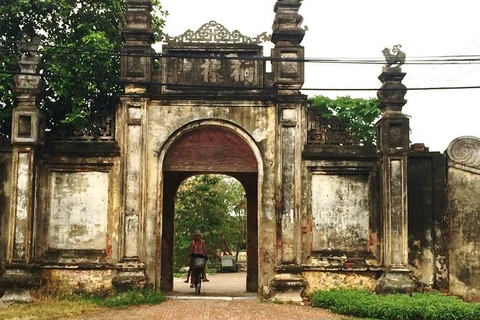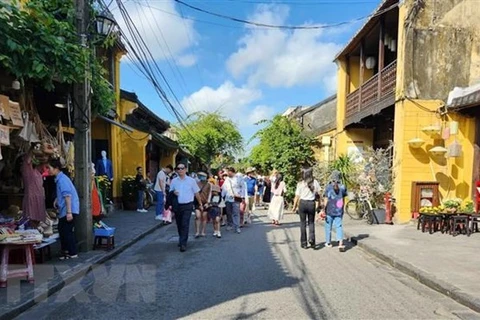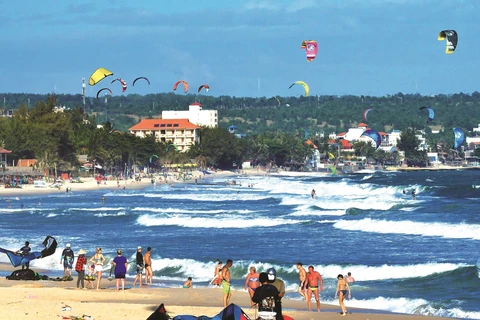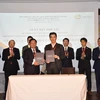 In the first seven months of this year, the country welcomes nearly 6.6 million foreign holidaymakers. (Photo: hanoimoi.com.vn)
In the first seven months of this year, the country welcomes nearly 6.6 million foreign holidaymakers. (Photo: hanoimoi.com.vn) Accordingly, Vietnam will extend the validity of tourist e-visas to 90 from 30 days, with multiple entries, and triple the duration of visa-free stays for visitors from certain countries to 45 days.
Both the Vietnam National Authority of Tourism (VNAT) and experts held that such adjustments will help spur the domestic tourism sector's strong development, and create attractive business opportunities for investors.
In the first seven months of this year, the country welcomed nearly 6.6 million foreign holidaymakers, fulfilling 83% of the yearly target, which sparks a hope that the target of 8 million will be achieved soon.
For travel firms, the new visa policy has enabled them to develop long-stay travel packages, luring more high-spending tourists. Many of them have held working sessions with their Vietnamese partners to prepare for the upcoming peak season for international travelers, especially the New Year holidays.
However, the visa policy is not enough, experts said, suggesting concerted solutions to raise the competitiveness of the “smokeless” industry.
They stressed the need to build more unique, attractive products, step up promotion activities in key markets, pay more attention to the management of tourist sites, raise the quality and quantity of personnel, and utilise digital transformation and science-technology in the sector.
According to the VNAT, with its current pace, the industry will need 40,000 new workers each year, and 25,000 others need further training.
Moreover, Vietnam lags behind other countries like Singapore, Japan and Malaysia in the quality of tourism workforce, hence the tourism sector needs to improve the qualifications of its personnel./.
According to the VNAT, with its current pace, the industry will need 40,000 new workers each year, and 25,000 others need further training.
Moreover, Vietnam lags behind other countries like Singapore, Japan and Malaysia in the quality of tourism workforce, hence the tourism sector needs to improve the qualifications of its personnel./.
VNA























